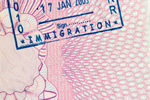How do expats make out in Asia’s overpriced cities?

How do expats make out in Asia’s overpriced cities?
Places such as Tokyo, Hong Kong, Seoul and Singapore feature regularly in the world’s most expensive expat cities lists, but never seem to lose their popularity as career and social life hubs. Surveys base their results on replies to questions about housing, general costs of living, recreation, transportation, entertainment and other must-haves for those who enjoy spending money, with Asian cites in prominence due to their high-cost accommodation and consumer goods. It’s obvious that an upwardly-mobile expat can’t live in a shack, but consumer goods are, surely, discretionary spends?
Some surveys go further, making comparisons between an individual expat’s life in their chosen destination and that in their home country. For example, an expat professional living and working in Hong Kong might well be asked how it compares with city life in the home country. In this case, 33 per cent of the salary would go on a miniscule apartment, as Hong Kong is very short of land. The city’s transportation network is world-class plus one, including trams, MTR rail services, ferries and taxis, many of which may not be available back at home. As regards food, Hong Kong is stacked with eateries at all levels, with the local market and hole-in-the-wall vendors getting recommendations as high as those given to pricey restaurants. An expat from, say, New Zealand would find some necessities far more expensive, with others comfortably lower.
It’s the same with Tokyo, especially where tiny apartments are concerned, for exactly the same reasons. The sprawling city is huge, but its population is even larger. Rents take up less than in Hong Kong, with 15 per cent of salary the average, and transportation is excellent and affordable. Tokyo loses out on affordable food, as most eateries are pricey and supermarket bills soon add up. However, local markets are slightly less expensive. Saving is tricky but. for the average expat, living costs can be the same as in the West.
For Singapore, the results seem similar to those for Hong Kong, with rental charges taking up 20 per cent of salary and excellent transportation options at affordable costs. Food is where Singapore wins out hands down as it’s famous for its multinational cuisine at great prices in the food courts and markets. Saving in Singapore is easier than in the previous cities, with 50 per cent of salary a distinct possibility. Seoul is another example of an expensive Asian city, but owning an apartment and car helps keep down accommodation and transportation costs. Fresh food, especially fruits and vegetables, are especially expensive, as are meals out. Transportation is by bus or subway and reasonably priced, and local traditional markets are good places to splurge on seasonal foodstuffs. Many of Seoul’s museums allow free entry, and watching the monthly budget gives a good chance of regular savings compared with, say, New Zealand, where everyday life is definitively more expensive.
Related Stories:
- Is Kuwaitization the unintended result of the oil price crash? - July 20, 2020
- Expats in Malaysia still banned from overseas travel - July 17, 2020
- HSBC Asia to cut back on internal expat relocations - July 16, 2020
- Tips on integrating for newly-arrived expats - July 15, 2020
Latest News:
- Tips on a trouble-free relocation as an expat overseas - July 20, 2020
- Expats find peace in the covid-19 refuge of Dahab town - July 20, 2020
- Is Kuwaitization the unintended result of the oil price crash? - July 20, 2020
- Expats unhappy abut changes to Korean points-based visa system - July 17, 2020
- Chiang Mai and Bangkok no longer bargain locations for expats - July 17, 2020
- Expats in Malaysia still banned from overseas travel - July 17, 2020
- Vietnam welcomes expats to its safe, affordable lifestyle - July 16, 2020
- Asian tiger economies reach out to expats in Hong Kong - July 16, 2020
- HSBC Asia to cut back on internal expat relocations - July 16, 2020
- Tips on integrating for newly-arrived expats - July 15, 2020


